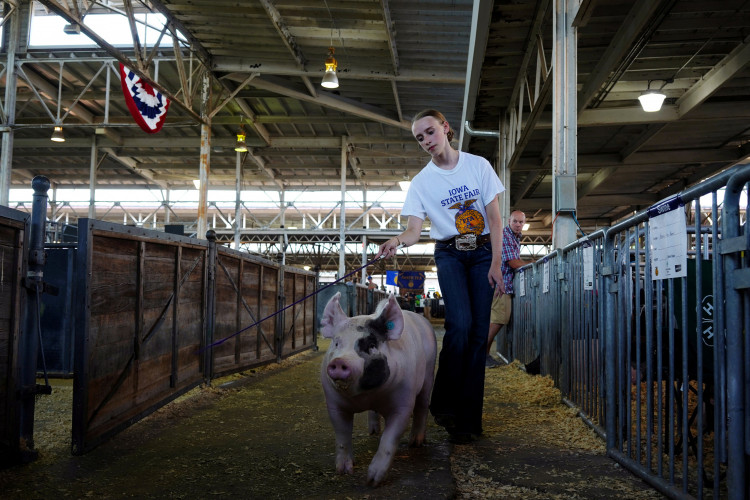China, the world's biggest producer of pork, is facing a massive swine fever outbreak that has dealt a heavy blow to the industry. Following weeks of investigation, some Chinese agriculture experts suspect that the outbreak may have come from imported pork from Russia. This conclusion was made after investigations revealed that the same strain of the virus has affected thousands of pigs in Russia prior to it spreading to China.
The Chinese government has already dispatch experts to investigate the matter. Inspectors are already deployed from the northern province of Heilongjiang to the southern province of Guangdong in an effort to at least mitigate if not completely contain the outbreak.
The swine fever virus does not affect humans. However, the virus is very lethal to pigs. Since the first reported case in July, the virus has already spread to at least four provinces in China.
Despite the wild spread of the virus, one Chinese industry expert highlighted the fact that there is a marked improvement in terms of disease control when compared to previous outbreaks. He said that this can be traced down to detailed reporting, as well as advances in the medical technology.
The presence of the African swine fever in China was confirmed on Aug. 3. This was reported after several pigs died in the Shenyang in the province of Liaoning. It is the first time the virus had been detected in the region. This is the same virus that had affected thousands of pigs in Russia and Germany.
Following the reports early this month, three more cases of the African swine fever was confirmed. A report on Wednesday stated that 340 pigs were killed and another 430 others were infected in Yueqing in the province of Zhejiang.
In the neighboring province of Jiangsu, 88 pigs were reportedly killed and another 615 were infected with the African swine fever four days prior, according to the South China Morning Post.
Due to this massive outbreak, a slaughterhouse controlled by Shuanghui Development which is a subsidiary of the world's largest processor of pork meat, WH Group, decided to suspend its operations. This was done after the virus was detected in dead pigs from the Heilongjiang province.
In order to curb the spread of the virus, some pig farms have resorted to culling infected pigs and burying their carcass.
China, which is the world's largest producer of pork, produces as much as 600 million pigs on an annual basis. Moreover, pork is a staple component of the Chinese diet. Pork accounts for 60 percent of total animal protein consumed in China.





